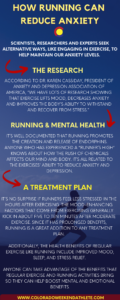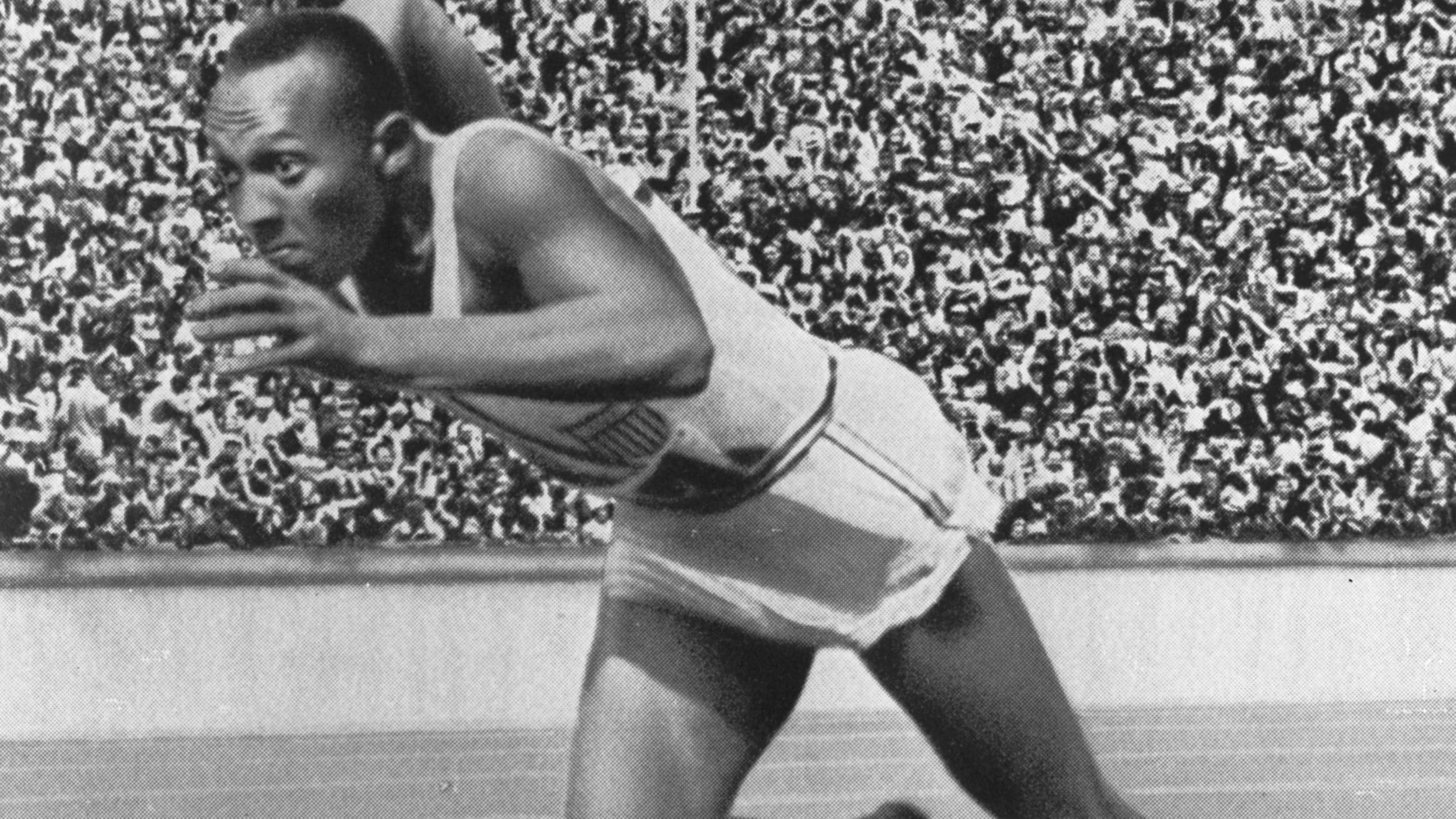Running is considered one of the most popular sports for a reason. It helps us stay energetic, stay in shape and even bond with a community of other runners.
On top of it all, the sport can also help to significantly reduce anxiety. Over 40 million adults aged 18 and over battle anxiety disorders, and around 16.1 million adults aged 18 years and up have experienced at least one depressive episode in the past year. Scientists, researchers and experts seek alternative ways, like engaging in exercise, to help maintain our anxiety levels.
The Research
Running and other types of exercising, like walking and weight lifting, can all help reduce anxiety and can be an effective treatment option for mental health conditions. According to Dr. Karen Cassiday, President of Anxiety and Depression Association of America, “We have lots of research showing that exercise lifts mood, decreases anxiety and improves the body’s ability to withstand and recover from stress.”
For decades, scientists have studied why exercises have a powerful effect on our mental wellbeing. But studies are also showing that exercises like running influence our mood and mind. For one, it helps clear the bloodstream of stress-inducing chemicals and helps relax our muscles. It also decreases inflammation markers that are associated with poor mental health, regulating and releasing chemicals in the brain that help people feel good. Running also helps us regulate our sleep and improve its quality, which positively impacts depression and anxiety symptoms. These effects occur after 20 minutes of running and can last for hours afterward. For many, it can be a guaranteed benefit for anyone who wants to feel better.
Running and Mental Health
It’s well documented that running promotes the creation and release of endorphins. Anyone who has experienced a “runner’s high” knows about how the rush of chemicals affects our mind and body. It’s all related to the exercises’ ability to reduce anxiety and depression.
According to a study published in the US National Library of Medicine — NIH, structured exercise shows progress in alleviating symptoms of clinical depression. Runners don’t have to join a marathon to reap the mental benefits. An average of five days per week for approximately 50-minute sessions is recommended for enhanced mental wellbeing.
A Treatment Plan
It‘s no surprise if runners feel less stressed in the hours after exercising. The mood-enhancing factors that come from exercising generally kick in about five to ten minutes after moderate exercise. Since it has prolonged benefits, running is a great addition to any treatment plan.
Many studies have also found that regular aerobic exercise, like jogging, reduces symptoms of clinical depression and related stress. Studies from the Anxiety and Depression Association of America state how running other forms of vigorous exercise can reduce anxiety and help runners relax.
Dr. Michael Otto, a well-known researcher in exercise and mental health, says that on top of cognitive-behavioral therapy and medication for treating anxiety, there is more evidence on the value of exercise for treating clinical anxiety disorders and other difficulties with anxiety.
Additionally, the health benefits of regular exercise like running include improved mood, sleep, and stress relief. Health providers can also provide evidence-based physical activity interventions for people who suffer from moderate or more serious mental illnesses.
Anyone can take advantage of the benefits that regular exercise and running activities bring so they can help boost mental and emotional benefits. Across all ages, the mental health benefits of running and other exercises are the same for everyone and can even help people who have severe mental health disorders manage their anxiety better within their treatment plans.








